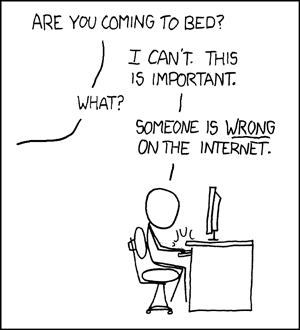Today I saw a weak, but well voted, answer.
There were a number of viable, potential answers to the question. So this was not a "how do I drive drunk safely" impossible answer that must be answered "you don't". The answerer thought it was, though, which I think was hasty.
The answerer did indeed proscribe an answer. But even the answerer didn't like it, since the answerer spent several paragraphs tearing the answer to shreds and predicting woe and suffering if the answer was followed. That didn't really seem like an answer to me. I wouldn't have minded if it was an aside to a good answer. The answerer is capable of better and I wanted to see the answerer step up.
But how do you have that discussion?
The ways I tried didn't work: First simply saying "This is not an answer to the question." And then explaining how I felt "you don't" isn't an answer, frameshifts shouldn't be extreme or made lightly, an answer you tear apart isn't an answer, etc. This melted down very rapidly into violations of "be nice", "assume good intent", mass deletion and an admonishment of "This Ends Here" without any link to a rule to support it.
Last I heard, comments were precisely for commenting on problems with answers. That is literally their one purpose, and it seemed that I was the only one following that rule.
So going forward... how are you supposed to handle fundamental flaws in answers like this? Is there a reasonable and standard process which should apply to all Contributors equally? I am assuming that is a core value here. Am I mistaken?
